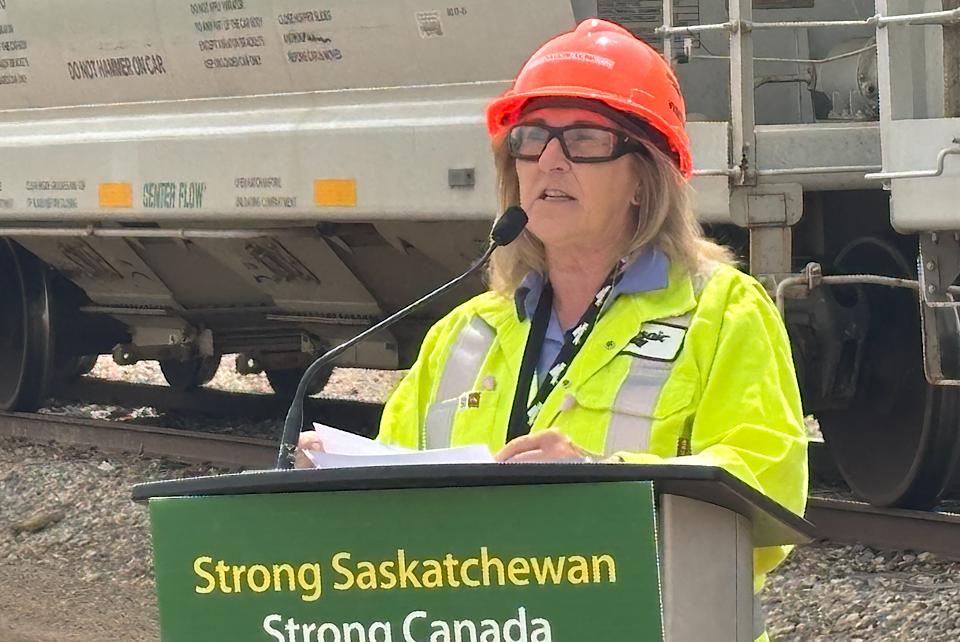BELLE PLAINE - Tariffs remain a storm cloud facing the energy and resource sector in Saskatchewan.
The spectre of new tariffs from President Donald Trump, as well as existing tariffs imposed on Canadian steel, remain a hot concern. The latest news Tuesday from Prime Minister Mark Carney was that Canada would taking countermeasures on steel from China, with a 25 per cent tariff being imposed by Canada in an effort to prevent dumping.
There has also been controversy over China’s tariffs on canola. Minister of Energy and Resources Colleen Young was asked Tuesday if she had heard anything from the federal government about China’s canola tariffs, she said she had not.
Young, who was at a media event at Mosaic's Belle Plaine potash mine touting Saskatchewan as an energy superpower, met other energy ministers last week in Prince Edward Island but noted those talks focused on other issues .
“The meetings that we had last week in PEI, we did discuss tariffs a little bit, but for the most part we were focused on energy and making Canada a superpower and the work that's coming out of there. I will leave the counter-tariffs and the discussion to our Prime Minister and his Cabinet as to what they work on moving forward in our country.”
The escalating tariff talk from the Americans also has drawn a reaction from political leaders looking to suspend potash exports as a retaliatory measure. Green leader Elizabeth May has suggested Canada respond by creating a strategic reserve.
When asked about that, Young responded: “I know that our Premier has spoken with regards to counter-tariffs with the Prime Minister in the past, and that is a discussion that we will need to have with the federal government moving forward if there are stronger tariffs put on.”
Pam Schwann, President of the Saskatchewan Mining Association, made it known she didn't want the resource sector used as a bargaining chip on trade talks.
“We don't think any of our mineral sectors should be held as a bargaining chip in any of these negotiations. Not just our minerals, but our agricultural commodities as well. It's very hurtful to Saskatchewan people and our economies.”
As for the impact the trade war was having on the province, Schwann indicated that overall their members weren’t seeing a major impact.
“Right now, all of our products are CUSMA compliant, so they aren't affected directly by any trade tariffs that are going across the border to the US,” said Schwann.
But she did note that there were impacts on some products such as automobiles and steel products, leading to increased costs for their industry from that.
“So if you've got large capital projects that are happening, you're going to see some price escalation, and that may actually stop those projects from moving forward. So we're watching it very closely, obviously concerned. We'd like to see free trade, especially amongst our allies, and that's what we're hoping comes through at the end of the day.”
It was Schwann’s belief that she didn’t think they would ever not trade with the US. “The US has 80 per cent of their potash from Saskatchewan,” said Schwann.
“You're not really going to be able to replace that very easily, if at all. And our uranium as well, 25 per cent of the uranium in the US comes from Saskatchewan. So they're an important trading partner for us. We're hopeful that the trade discussions are beneficial to both parties.”
But she did note there were other potential markets for potash as well as for uranium. “The world is increasingly using nuclear, so there are other markets out there. The world needs more potash. There are emerging markets in Southeast Asia, Africa. And so there are other potential markets or expanding markets. But the US is a very important client of our member companies.”




